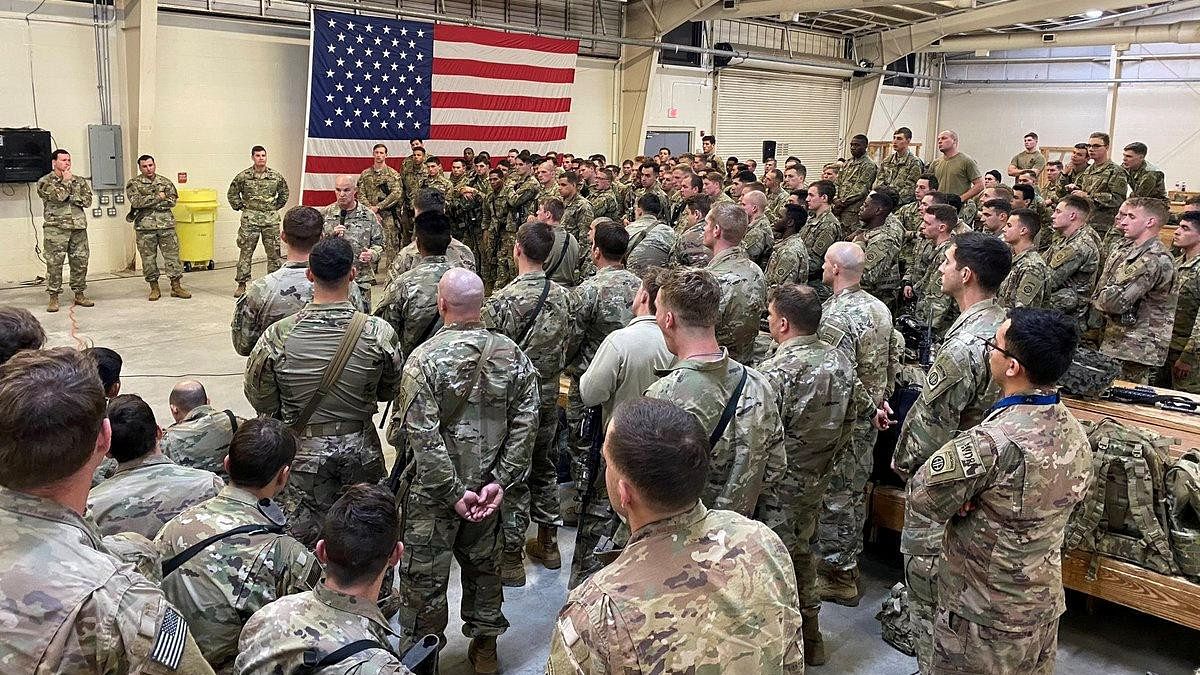
Battalion from the US Army (Representative image)
Credit: Reuters File Photo
It is that time of the year once again when the east side of Manhattan will reverberate with vain declarations to fight terrorism on national, regional, and global proportions. Once the ‘general debate’ addressed by presidents, prime ministers, monarchs, and foreign ministers at the 79th United Nations General Assembly from September 24 to 30 concludes, the world will go back to complacency, and do nothing long-term or worthwhile about counter-terrorism.
The world’s approach to terrorism changed on September 20, 2001, when United States President George W Bush declared at a joint session of the US Congress that “either you are with us, or you are with the terrorists.” This was in the aftermath of the September 11 attacks on the World Trade Centre and the Pentagon. The realisation that the US was no longer immune to terror attacks from the outside made Americans sit up.
India had been a victim of cross-border terrorism long before New York and the outskirts of Washington were dramatically invaded by hijacked commercial planes. Throughout the 1980s and 1990s, when Punjab and Kashmir slowly but continuously bled, few nations cared.
The first country to understand India’s plight in those difficult years was Egypt. During a visit to Cairo in October 1995 — of which this author was a part — Prime Minister P V Narasimha Rao was told by Egyptian President Hosni Mubarak about a secret operation of great significance to India then. Egyptian intelligence and counter-terrorism operatives had seized a huge haul of Pakistani arms meant for subversion abroad.
Mubarak was arguably the first foreign leader to realise that the Army General Headquarters in Rawalpindi was fine-tuning terrorism as State policy on a global scale. Mubarak told Rao that the Pakistani weapons consignment was meant for Al Gamma Al Islamia, which was devoted to destroying Egypt’s secular social fabric. Al Gamma operated parallelly with the Muslim Brotherhood and was the predecessor to the present-day Islamic State of Iraq and Syria (ISIS).
Cairo paid a price for cracking down on Rawalpindi’s attempts to export terror to West Asia. Egypt’s embassy in Islamabad was targeted with a car bomb on November 19, 1995. Fifteen people were killed, including diplomats and Egyptian security guards. Mubarak did not waver. After the September 11 attacks, Egypt’s President lamented in an interview that the successive leaders in Washington ignored his private warnings about an emerging global scourge of terrorism.
The September 11 attacks were a tragedy. But like all calamities, they also threw up opportunities. The entire world united against terrorism and in support of the people of North America. Unfortunately, the US soon squandered this goodwill on a global scale. Bush cooked up fanciful tales about Iraq’s President Saddam Hussein possessing weapons of mass destruction and about Iraq’s non-existent nuclear weapons programme.
In an unguarded moment, Bush conceded that the real reason for attacking Iraq in 2003 was that “he tried to kill my father.” The “he” in question was Iraq’s dictator and “my father” was President George H W Bush, who had successfully put together a UN-led coalition and driven Hussein out of Kuwait, which he occupied.
Since then, successive US presidents have used terrorism as a pretext for promoting partisan US foreign policy goals, often devoid of benefits to the international community. Such a short-sighted approach has ended up giving a fillip to global terror.
The US saw the Arab Spring as a windfall chance to change regimes in West Asia, where other means it had used for decades to overthrow anti-West leaders had failed. Presidents like Syria’s Bashar Al Assad were conveniently painted as terrorists. Libya’s Muammar Gaddafi was driven out of power through subterfuge in the UN Security Council and assassinated. Washington’s approach to Tehran ignored the inconvenient truth that the Islamic Republic had been a victim of terrorism from day one.
If China and Russia were not veto-wielding UNSC members, they would both have been pilloried in the world body as countries promoting State terrorism under disguise. Russia has consequently been the target of misguided, unilateral US sanctions.
Meanwhile, the international community is unable to agree even on a universal definition of terrorism. Unless circumstances change, the adage ‘one man’s terrorist is another man’s freedom fighter’ will remain a guiding principle.
The collateral damage of all this continues to be inflicted on innocent masses who have little role in making counter-terrorism decisions. Those decisions are made by mandarins who inhabit ivory towers, unaffected by the problems they are deciding on.
K P Nayar has extensively covered West Asia and reported from Washington as a foreign correspondent for 15 years.
(Disclaimer: The views expressed above are the author's own. They do not necessarily reflect the views of DH).